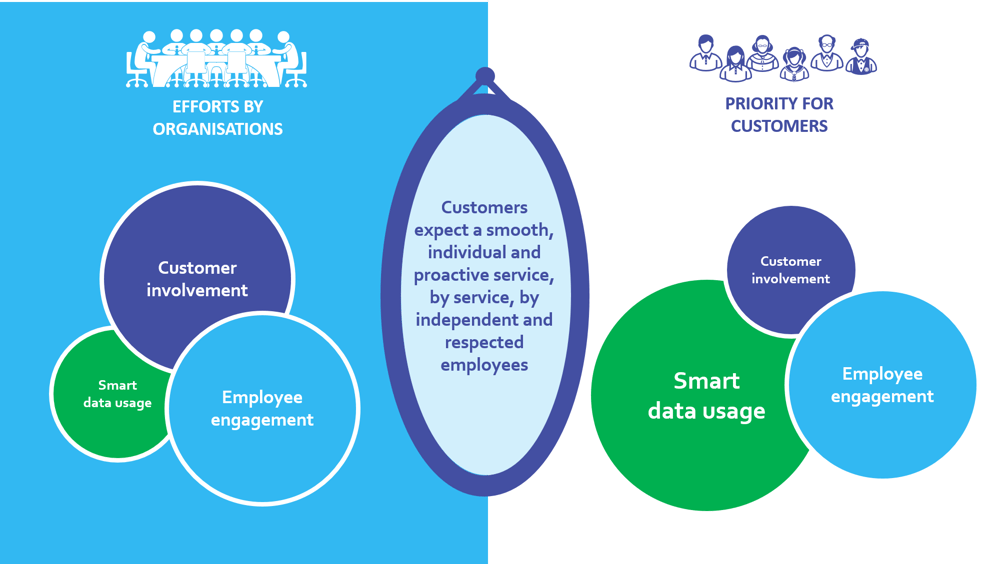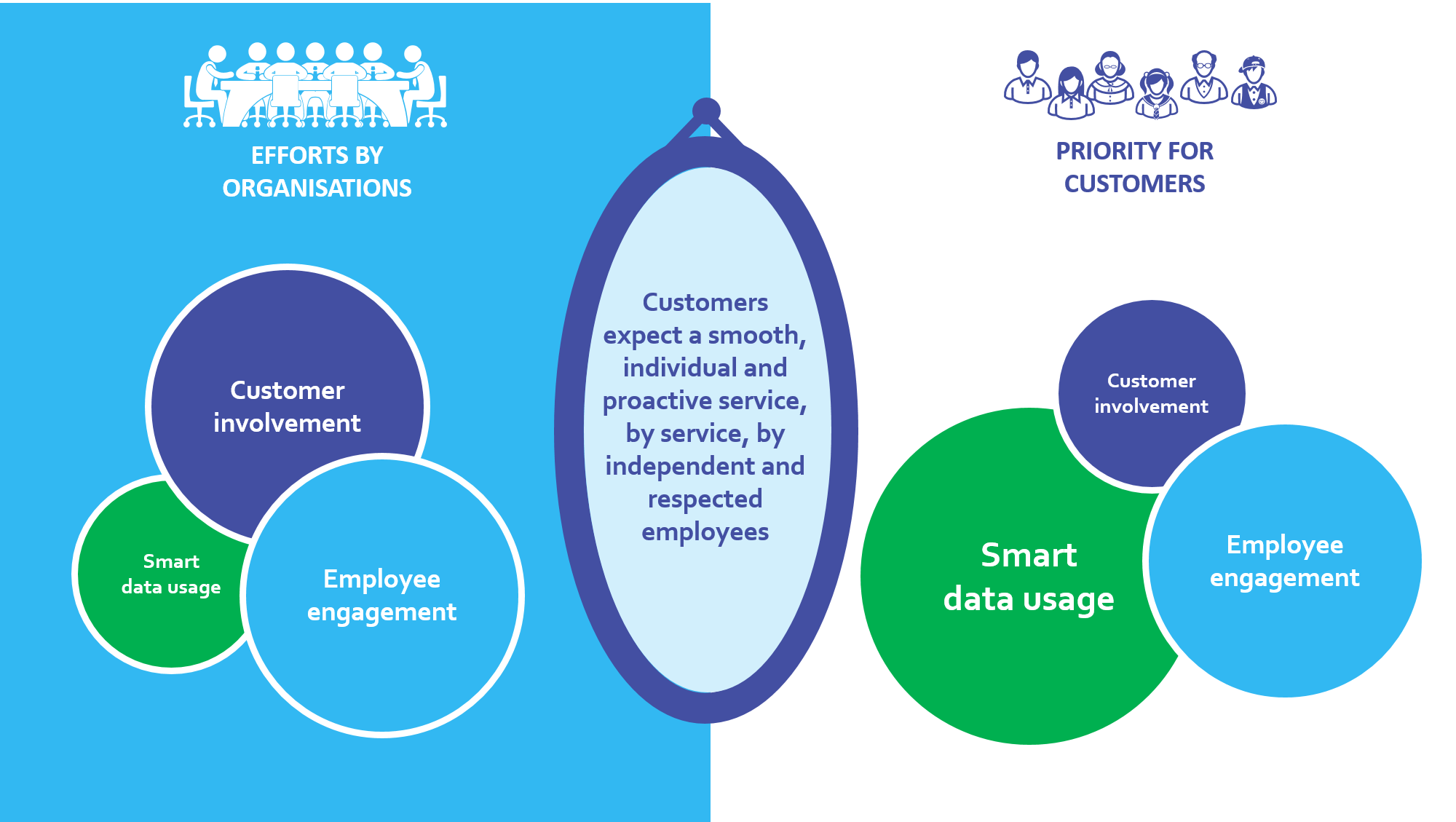In recent years there has been more focus on market research and consumer panels. Companies are investing heavily in tools and systems to get customers involved, including development, new services and evaluating the experience. Is this enough however, to give customers the feeling of excellent service? The answer is clearly: no! These days you need more than that to make customers loyal to your company or brand.
Recently Möbius carried out a so-called mirror assessment around Service Excellence. This included an online survey among 40 organisations from the service industry, healthcare, manufacturing and distribution to identify the factors used most in the context of Service Excellence. In addition a representative sample of 1,000 Belgians (online consumer panel) across the country were asked to rank these same factors.
The consumer survey demonstrated that ‘Smart Data Usage’ (in first place) and ‘Employee Engagement’ (in second place) are more important in Service Excellence than involving customers in development and feedback or evaluation of the service.
Digitisation (Social media, Mobile, Analytics, Cloud, Internet of Things,…), which is growing and will undoubtedly continue to grow, is clearly generating new expectations from customers and different consumption patterns and network dynamics. Connected customers are quite different from traditional customers. They not only expect smooth and faultless service throughout the customer journey (operational excellence), but also that this service is personal and, even more important, that companies are going to be focused proactively on their needs (customer centricity). Indeed, they realize all too well how much data is held by companies and therefore expect it to be put to good use.
In this increasingly digital story staff also get to play the starring role. It is indeed their passion that helps boost customer satisfaction and loyalty. Furthermore, it’s important that staff are able to make the right decisions autonomously when things do go wrong.
There’s still a long way to go. Indeed, the survey among 40 organisations showed us that there’s currently lots of focus on systematic evaluation of service provision using transactional research. This however has a lower priority among consumers than providing a smooth, personal and proactive service and being able to rely on staff to make decisions autonomously and being respected by their employer.
Currently key processes are being monitored in real-time and continuously adapted in line with defined indicators in just under half of the organisations (around 45%). Furthermore, only 15% of the organisations questioned are already using transactional data available at individual customer level to anticipate future customer behaviour. Use of available data for a personal approach to customers achieves a similar score (15% of those organisations asked are already doing this).
Fortunately 3 out of 4 organisations already actively invest in employee well-being as it is believed that staff are essential in achieving outstanding levels of service. However, independent teams with the power to make their own decisions and room to improvise in order to provide the best possible service are by no means commonplace (around 3 in 10).
The diagram below summarises the current focus in organisations compared to consumer priorities, as revealed by the mirror assessment:

So it’s simple: those wishing to offer customers excellent service levels, need to focus on smooth customer journeys, an individual and proactive service and social capital!









